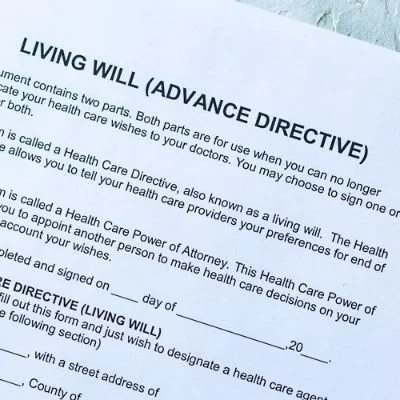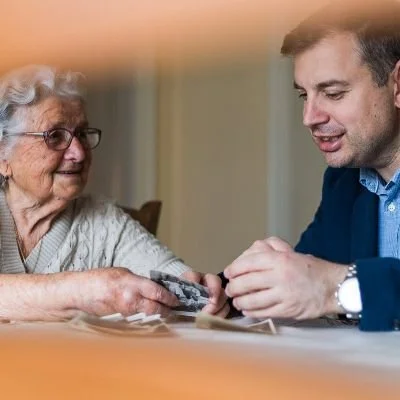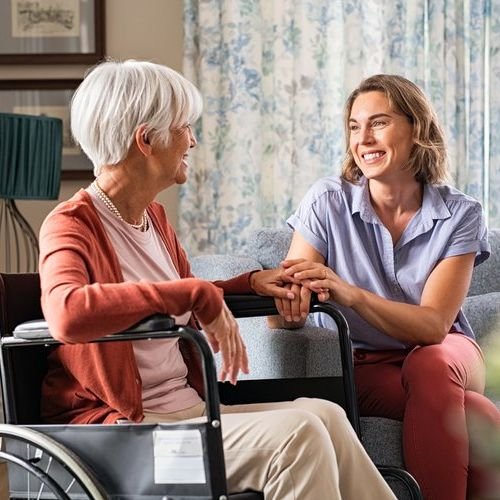Your Greatest Hits!
What the most popular articles of 2022 reveal about you
Dear Caregivers,
Now that 2022 is over and the new year has begun, it’s been interesting for me to look back over the last year and see what articles proved to be the most popular with the NAN For Caregivers community.
Looking at the top 10 articles for 2002 — the “greatest hits” of the year— I can see some very positive patterns emerging among your interests. In turn, these patterns will help guide us in creating even more content in these areas in the future. Here are a few observations:
You are actively planning for the future: Several of the top articles are about navigating the legal and logistical elements of caring for your loved one, particularly in planning for emergencies and other changes. This is not only good for you and your loved one should that future need one day arise, but as important, it is good for your “present self”, too, as the peace of mind that comes with advanced planning does wonders for reducing your stress.
You want to improve the everyday life of your loved one: Some of the most-viewed articles are about how to make the most of your loved one’s day, which demonstrates that you are focusing on the present, and on keeping it positive.
You are taking care of yourself, too. One of the most-accessed articles is part of our “Caregiver Essentials” series, which is an exclusive offering for NAN caregivers that helps you understand the important elements of self-care. It’s one of the cornerstones of my caregiving philosophy: Take your oxygen first! After all, if you don't take care of yourself, you won’t have the physical and mental strength to care for anyone else.
You are learning how to deal with some difficult changes. Changes in your loved one’s mood, activities and behavior are unfortunately quite common with this devastating disease. We’re here to help you cope with these changes, with our content and, of course, your personal navigator, who is your constant companion on this journey.
You are finding time for a little fun. We’re delighted to see that one of our “virtual tours,” which is exclusive to the NAN community, made it into the top-accessed content list. This suggests that, despite all the challenges of the past year, you were able to make a little time for you and your loved one to enjoy some of the simple joys of life.
Here are some highlights of the top content of the year:
Caregiver's Plan B:
No family caregiver wants to think at some point they wouldn't be able to help their loved one. But the chance that something could happen to you that would make it impossible for you to provide the support you currently provide makes it critical you identify an individual who is the best “Plan B” caregiver. Here’s a plan for finding the person who will be able to quickly take over as advocate and guardian for your loved one in the event that is needed.
The Basics of Advanced Directives:
In situations where your loved one cannot speak for themselves, medical personnel will turn to the next of kin to get help in making important health decisions. It is important to have your loved one’s wishes of how to respond in a serious medical situation be known in advance, through several documents such as an Advanced Directive and Living Will. Here’s what to do.
Activities for a Good Day:
Try these activities to keep your loved one occupied and engaged during the day.
Private Duty and Companion Care:
“Private Duty Care” and “Companion Care” are services intended to help your loved one to safely get through day-to-day activities such as personal care, preparing meals, housecleaning, and offering companionship. These services can also offer a break for caregivers, who can use the time to be on their own. Here is a list of recommended local private duty and companion care companies that might be useful in your caregiving journey.
Managing Difficult Behaviors:
For caregivers some of their greatest challenges come from the mood, personality, and behavior changes that can occur as Alzheimer’s disease impacts the brain. Here are some recommendations for handling these situations.
”Sundowning" and How to Manage It:
Sundowning is a state of increased confusion, agitation, nervous activity and negative behaviors that happens late in the day and through the evening hours. When your loved one is sundowning, they may become demanding, suspicious, upset, or disoriented, see or hear things that are not there, and believe things that are not true. They may pace or wander around the house while others are sleeping. Here are some tips for reducing the occurrence of sundowning and softening its effects when it does happen.
Paying for Care for Elderly Loved Ones:
Here’s an overview of the basic categories of care most often needed by elders and payment options available, including what Social Security and Medicare covers for elderly care — and what it doesn’t cover. Learn more here.
Understanding the Emotional Changes of Alzheimer's Disease:
The challenge that family caregivers face is to learn acceptance, to live in the present moment, and to let go of things you cannot control. This is a challenge to be sure, but if there can be any joy in caregiving, this is where it is. Learn more about how Alzheimer's disease impacts an individual's emotions.
Remember, if you can’t find the information you need on our website, you can always “Ask NAN” by clicking on this link.
Best,
Rosemary D Laird, MD, MHSA
Founder and Chief Medical Officer
“Life is change. Growth is optional. Choose wisely.”
— Karen Kaiser Clark









